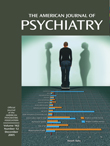To the Editor: Nancy C. Andreasen, M.D., Ph.D., et al.
(1) made a case for establishing “remission” criteria for schizophrenia, noting that this would provide a more homogeneous means of comparing outcome data. “Remission” was defined by the authors as a low level of symptoms that “do not influence an individual’s behavior” (p. 441).
The criteria represent increased precision over such nonspecific descriptors as symptom improvement or stabilization, which could prove valuable as we seek to better understand schizophrenia, its course, and the use of various interventions. We laud this initiative and thank Dr. Andreasen et al. for their effort, although we disagree on what these criteria should be called. We are wary of reifying a decrease in a subset of symptoms without any reference or measure of real improvement in functional outcome or quality of life with the rather bold imprimatur of “remission.”
The authors duly noted this limitation in their text because the criteria are confined to three dimensions of psychopathology (positive symptoms, negative symptoms, and disorganization) and did not address other domains (e.g., cognition, psychosocial symptoms) that are critical to functional recovery. They further added that “symptom quiescence” does not necessarily equate with functional improvement. The problem is that the majority of the specialists and lay users of this term from here on will not have the nuanced sophistication of its authors. This is more than semantic quibbling because nomenclature is not just a matter for psychiatric researchers anymore. It has implications for patients, families, direct-to-consumer advertising, insurance companies, governments, and societies at large.
For the average person, remission implies that all explicit signs of the disease are gone and that the individual is now freed from illness to resume his or her natural trajectory in life. However, the patient with schizophrenia who, according to these criteria, would be in “remission” is likely to remain cognitively impaired, socially isolated, unemployed, and marginalized. Because all of these impairments are a direct consequence of the disease and its correlates, it would be unfair to say the illness is in remission. Indeed, both the individual and the family might be puzzled as well as frustrated in their daily struggle with the impact of the illness to hear that the medical profession has declared the same patient to be in remission. Remission could also be misinterpreted by insurance companies and payers working on the premise that symptomatic and functional improvement go hand in hand.
We have been presented with clear criteria that define remission in certain important symptom domains; perhaps a label of “symptomatic remission” or some analog thereof may be more appropriate. Labels are powerful symbols; all we ask for is some deliberation on this point before the field adopts them.

